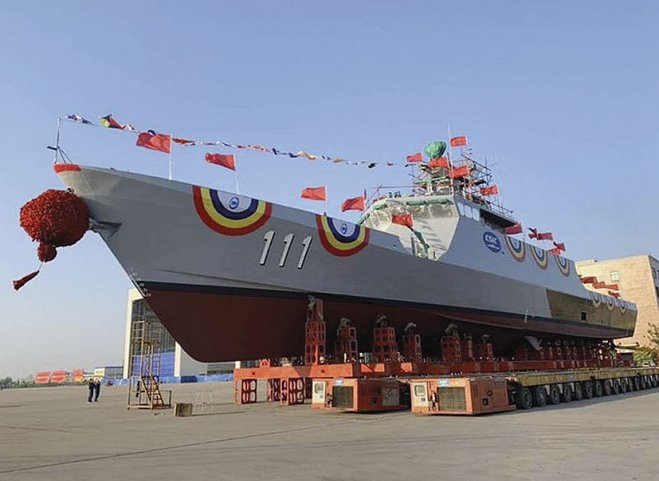
Malaysia’s first Littoral Mission Ship, Keris, seen here before its launch in China. (Royal Malaysian Navy)
Putrajaya’s decision to revise the contract for four Littoral Mission Ship (LMS) vessels with China Shipbuilding Industry Corporation (CSIC) will not negatively impact transfer-of-technology arrangements between the two countries, Malaysia’s Ministry of Defence emphasised in a statement on 1 August.
The statement was issued against the backdrop of ongoing criticism from the country’s opposition politicians, most notably from former prime minister Najib Razak, who described the decision as “penny wise, pound foolish”.
The Malaysian government, which was then led by Najib, signed a MYR1.17 billion (USD282 million) contract for four LMS vessels with CSIC in 2017. It is the country’s first major naval ship contract with China.
Under the original contract, the first two vessels in the programme were to be built in China by a CSIC-affiliated shipyard, while the remaining two hulls would be constructed by Malaysia’s state-affiliated Boustead Naval Shipyard (BNS) with Chinese assistance as part of a technology transfer arrangement.
Najib’s administration subsequently lost the mandate to rule at the May 2018 Malaysian general elections.
Under the new government led by Mahathir Mohamed, another former prime minister, the contract value for the LMS programme was renegotiated downwards to MYR1.05 billion, and all four ships will now be built in China.
“If two of the ships were built in Malaysia, the locals will get jobs. There would have been transfer of technology. We would have learned [shipbuilding skills]. We would have been to undertake maintenance and upgrades to the ship in the future,” said Najib via his official social media account on 26 July.
Looking to read the full article?
Gain unlimited access to Janes news and more...






